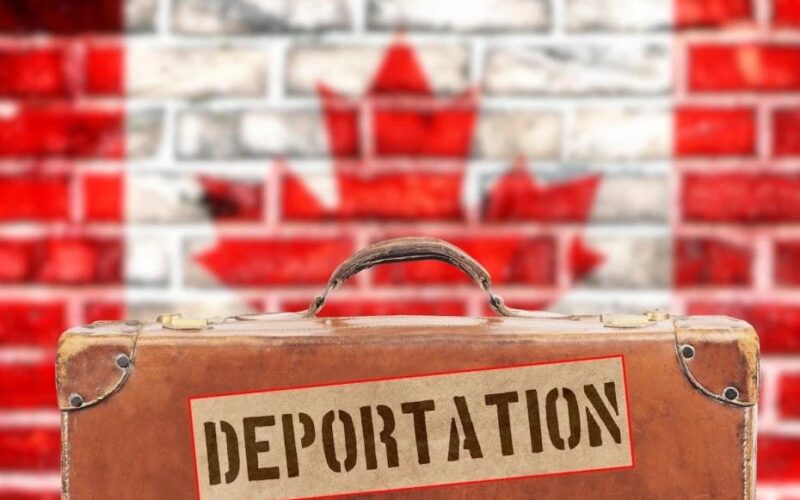Ottawa, (Rajeev Sharma): The Canada Border Services Agency (CBSA) has confirmed that the federal government is preparing to deport approximately 36,000 individuals from the country in 2025. According to official sources, more than 90% of those facing removal are failed refugee claimants whose asylum applications have been rejected or withdrawn.
This marks one of the largest deportation efforts in recent years, as the federal government moves to enforce immigration laws more strictly amid increasing pressure over border management, housing shortages, and concerns about irregular migration.
The breakdown of Deportations are 32,400 individuals are refugee claimants who have been deemed inadmissible after exhausting legal and appeals processes. 2,000 are foreign nationals with criminal records or who pose security concerns. 1,600 are undocumented migrants or visa overstays without legal grounds to remain in the country.CBSA officials stated that deportations will be prioritized based on public safety, criminality, and the length of time individuals have remained in Canada after being issued a removal order.
Many of the removals are expected to involve individuals residing in major urban centres, including Toronto, Montreal, Calgary, and Vancouver, where housing and social service systems have been under pressure.
As per CBSA Statement, “we are acting within the legal framework established under the Immigration and Refugee Protection Act,” said a CBSA spokesperson. “Only individuals whose claims have been fully reviewed and rejected often after multiple appeals are subject to removal.”Refugee advocacy groups, however, have raised alarm bells, warning that many deportees are being sent back to countries facing war, political persecution, or economic collapse. Amira Hassan, spokesperson for the Canadian Refugee Alliance, said this mass deportation effort is deeply concerning. The government must ensure that no one is returned to unsafe conditions. Many of these people came to Canada seeking safety and dignity.”
Opposition parties and immigration critics have welcomed the move, calling it a necessary step toward restoring order in Canada’s immigration system. Meanwhile, some Liberal and NDP MPs have called for greater transparency and case-by-case reviews, especially for families with Canadian-born children.In 2024, Canada received over 140,000 refugee claims, a sharp increase compared to previous years.
The Immigration and Refugee Board (IRB) has faced a significant backlog, with over 90,000 cases still pending as of early 2025. In the past five years, Canada has deported an average of 10,000 to 12,000 people annually. This year’s projected number of 36,000 represents a threefold increase.As Canada balances its humanitarian commitments with immigration enforcement, this wave of deportations is set to spark national debate about the country’s refugee system, legal processes, and long-term immigration policy.

